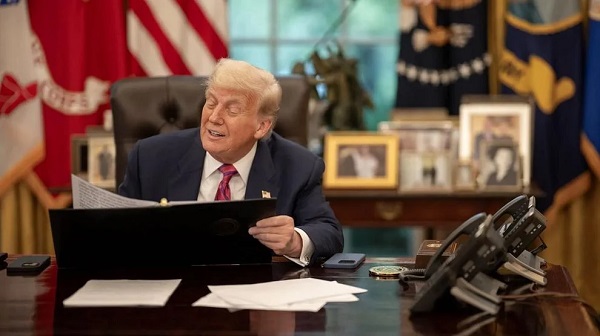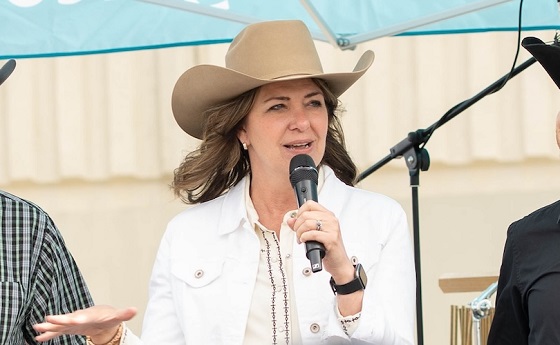INDIGENOUS CONSULTATION AND ENGAGEMENT AT CANADA’S ENERGY AND UTILITY REGULATORS
CAMPUT is the Association of Canada’s provincial, territorial and federal energy and utility regulators. CAMPUT’s purpose is to improve energy and utility regulations in Canada and to educate and train our members. We are highlighting the work of two of our members, the Canadian Nuclear Safety Commission and the Canada Energy Regulator, in the areas of Indigenous consultation and engagement.
The Canadian Nuclear Safety Commission (CNSC) has a broad mandate, including to protect health, safety and security, and the environment, and to disseminate objective scientific, technical and regulatory information to the public, including Indigenous groups. The CNSC is also an agent of the Crown with the responsibility of ensuring the Duty to Consult is met before making decisions. The CNSC has explored various means to ensure that Indigenous groups’ voices are heard and integrated into Commission decision-making. The CNSC has also committed to developing on-going, respectful relationships that allow open dialogue in the spirit of reconciliation and trust building.
First, the CNSC focused in-house and put into place policies, practices and processes with an overarching regulatory framework and management system to confirm that CNSC decisions uphold the Honor of the Crown. This included a Regulatory Document (REGDOC 3.2.2, 2016) that sets out the Commission expectations on how proponents play a significant role in working with Indigenous groups to address concerns and mitigate impacts and / or treaty rights, early in design and project proposal stages.
The CNSC also has a dedicated team with expertise in Indigenous consultation and engagement that conducts ongoing engagement with Indigenous groups with interests in nuclear facilities. The long-term goal is to help build relationships and trust and help CNSC staff learn more about the history, rights, interests, and culture of the Indigenous groups. The CNSC continues to work with Indigenous groups to ensure they are provided the opportunity to present their views and give oral presentations at Commission hearings.
To support this participation, the CNSC has put in place a Participant Funding Program that in part, has helped Indigenous groups hire consultants to review technical scientific reports, fund Indigenous Knowledge studies, cover community meeting costs, pay Honoraria for elders, and costs for travel and preparations for hearings. Further, Commission hearings have taken place in communities near facilities to allow easier access by Indigenous groups, and teleconferencing, web access, live streaming and simultaneous translation in Indigenous languages has also been used.
The CNSC acknowledges the importance of working with and integrating Indigenous Knowledge alongside scientific and regulatory information in its assessments and regulatory processes, where appropriate and where authorized by Indigenous communities. Indigenous ways of knowing and cultural context enhance the CNSC’s understanding of potential impacts of projects and strengthens project reviews and regulatory oversight.
The CNSC also runs its own Independent Environmental Monitoring Program (IEMP) that seeks Indigenous participation in taking samples from public areas around nuclear facilities and measuring and analyzing the amount of radiological and hazardous substances in the samples. Following discussions with many Indigenous groups, it was recognized that they could play a key role in identifying country foods and traditional harvest areas and participate as part of the IEMP. Getting meaningful monitoring results to Indigenous communities is a key priority for the CNSC.
The Canada Energy Regulator (CER) welcomes change. In August 2019 we transitioned from the National Energy Board to the Canada Energy Regulator. The CER has been given new legislation and is focused on improvement. Reconciliation with Indigenous Peoples is a pillar of our renewal.
Our legislation directs us to find meaningful ways to engage with Indigenous Peoples. We embrace our new mandate and have woven specific deliverables on reconciliation into every aspect of our work.
Our vision: to transform the way we work with Indigenous Peoples, recognizing their unique cultures, knowledge and histories; and endeavor to reflect a renewed Nation- to-Nation relationship based on the recognition of rights, respect, cooperation and partnership.
We recognize reconciliation is an ongoing process that occurs in the context of evolving Indigenous-Crown relationships. Sitting around the table with Indigenous communities, we are working to find new ways to co-manage regulatory oversight. We recognize the inseparable connection Indigenous Peoples have with the land and the water, and we will work collaboratively to protect them. We are also ensuring we equip the communities with the right skills and support to make the changes we envision a reality.
Indigenous Advisory and Monitoring Committees (IAMC) bring together Indigenous and federal leaders to provide advice to regulators and to monitor the Trans Mountain Expansion and Line pipelines. Members share the goals of safety and protection of environmental and Indigenous interests in the lands and water. Indigenous participation does not equal support or opposition for a project, allowing for better information-sharing within the group. This initiative represents a foundational change in the way the CER and the Federal government work with Indigenous Peoples. It aims to develop an enduring and meaningful relationship for the entire lifecycle of the project. We believe our work with the IAMCs can lead the way on co- management of regulatory oversight activities and has the potential to be applied across the rest of Canada’s energy system.
Here are some other ways we are changing how we work with Indigenous Peoples:
- We are meeting with Indigenous communities earlier on who may be impacted by projects we regulate to better understand their concerns and share how the CER holds companies accountable for the protection of Indigenous rights and interests.
- We are adapting our hearing processes to allow for different paths of Indigenous participation. This includes sharing Indigenous Knowledge, allowing for ceremonies, selecting specific locations for the hearing that are convenient to Indigenous participants or elders, and allowing for remote participation if travel is not possible.
- We are developing a National Indigenous Monitoring Policy so that all CER-regulated infrastructure projects can benefit from Indigenous Knowledge when they are being build and operated.
- We are training our employees to understand more about Indigenous history, culture and contemporary issues facing Indigenous Peoples in Canada. This training ensures that consideration of Indigenous rights and interests and becomes embedded in our way of working.
Background. The Canadian Energy Compendium is an annual Energy Council of Canada initiative which provides opportunity for cross-sectoral collaboration on a topic of shared interest across the Canadian energy sector, produced with the support of Canada’s national energy associations and Energy Council of Canada’s members. The stories contributed to the 2019 edition, Indigenous Energy Across Canada, highlight current conversations celebrating Canada’s dynamic energy sector and encouraging its continuous improvement.

Thanks to Todayville for helping us bring our members’ stories of collaboration and innovation to the public.
Click to read a foreward from JP Gladu, Chief Development and Relations Officer, Steel River Group; Former President and CEO, Canadian Council for Aboriginal Business.
Related




















